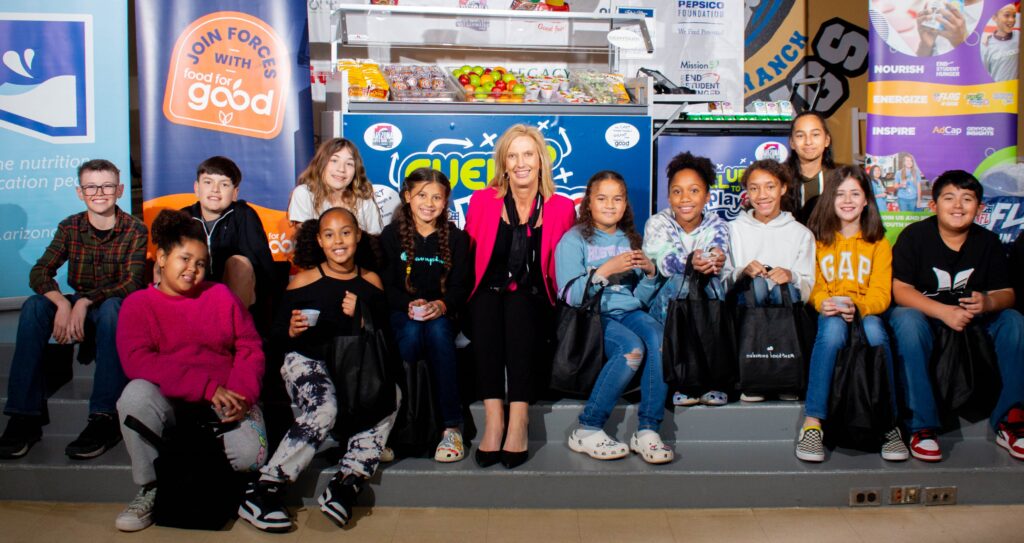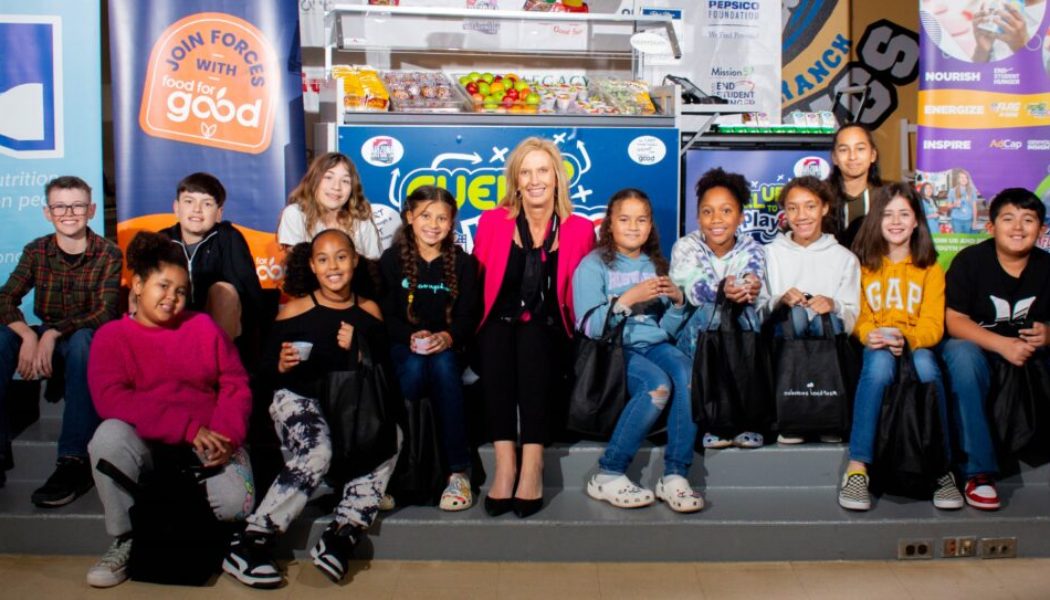April 15, 2024

GENYOUth’s newest Youth Insights report, Fostering Wellness in Youth: Cultivating Healthy Eating for the Future, offers a comprehensive overview of how schools and key stakeholders can foster healthy eating among youth and provides insights directly from students. Today’s students have a strong sense of responsibility for their health and wellness. We know because we ask them. GENYOUth Insights elevates youth voice through original, timely research on topics that matter to students and their schools.
Your report highlights the critical role that school breakfast plays in reducing child food insecurity. What can school stakeholders do to support school breakfast programs?
PROVIDE schools with the equipment and resources they need to feed students and give them food dignity. Public and private sector partners can also help by working collaboratively with school leaders, educators, school nutrition staff, and students to identify needs and design solutions.
MAKE SURE that foods served and sold at school, including school meals and snacks, are accessible, culturally appealing, nutritious, and aligned with the Dietary Guidelines for Americans. This should help students understand the nutritional value of school meals.
IMPROVE the mealtime experience with smoothie programs, cafeteria makeovers, grab and go carts, and other innovative solutions.
SOLICIT students’ own ideas in which they identify surprising opportunities to grow school meals participation by not only introducing kid-approved menu items, but empowering students to implement their innovations.
You recommend asking students for their input and innovative ideas. What were some of the top insights you learned when you solicited feedback from students?
First and foremost, they tell us, “If it’s about us, don’t do it without us!” They want to be part of creating solutions for their own schools!
- Youth tell us they are more likely to participate in school breakfast if they have a grab and go option.
- Knowledge is power, and kids who feel more knowledgeable report eating healthy more often, and they look to their PE classes and schools as the top sources for nutrition information.
- We just conducted a challenge with Office of Disease Prevention and Health Promotion (ODPHP), and students’ youth-led solutions included: hosting health and nutrition fairs, engaging students on where food comes from by hosting farmers to speak to them, and/or live/virtual farm tours; starting school gardens for the same reason; providing QR codes to listen to podcasts on nutrition; student-led workshops on health and nutrition; peer to peer workshops; and more!
You note that grab and go school breakfast dramatically increases participation, yet only 28 percent of students say their school offers it. Are there resources available for schools that want to move to this service model?
GENYOUth’s End Student Hunger grants are open to School Nutrition Programs until Tuesday, April 16 (educator.fuelup.org). This initiative offers the opportunity to apply for school nutrition equipment grants, including grab and go equipment and smoothie kits. These turnkey solutions have proven to grow school breakfast participation by double digits.
We also recommend visiting www.FuelUp.org for additional resources.
Many myths around the school meals programs persist, but as you note, research from Tufts shows that school meals have higher nutritional quality compared to other sources. What can we do to change the image of school meals?
RECOGNIZE the importance of messaging and communicating the healthfulness of school meals — to students, parents, educators, and school staff, along with showing the connection between healthy eating and its benefits to overall health, well-being, learning, and school performance.
CREATE a positive school culture around eating and nutrition through appealing breakfast options.
INVITE parents, caregivers, and key stakeholders to school breakfast or school lunch. Let them see the good work in action!
ENGAGE families in meaningful ways to improve student health and learning, recognizing GENYOUth Insights survey findings that parents/caregivers are the #1 influencers of their child’s eating choices.
ENCOURAGE families to support and reinforce healthy behaviors in multiple settings — at home, in school, in out-of-school programs, and in the community.
What surprised you most as you conducted research and compiled findings for this report?
As a registered dietitian, I found a lot of the findings very interesting — some sad, and others validating of the important work we are doing:
- Almost half of youth (45 percent) say they do not eat healthy, all or most of the time, but nearly two-thirds want to eat healthier — they need help accessing and understanding how to do so.
- The predictors of students eating healthy, including how often they sit down and eat with their family, how physically active they are, if they eat breakfast, and of course, household income played a significant role.
- We all know the stats about one in five children being food insecure but learning that over 30 percent of children themselves say they worry about having enough to eat is quite sobering, as these are the kids who skip meals most often. These kids also say they eat school breakfast because it is healthier food than they can get at home.
Ann Marie Krautheim, M.A., R.D., L.D., is chief executive officer of GENYOUth, a national nonprofit founded by America’s Dairy Farmers and the NFL, dedicated to helping schoolchildren thrive by living well-nourished and physically active lives.









